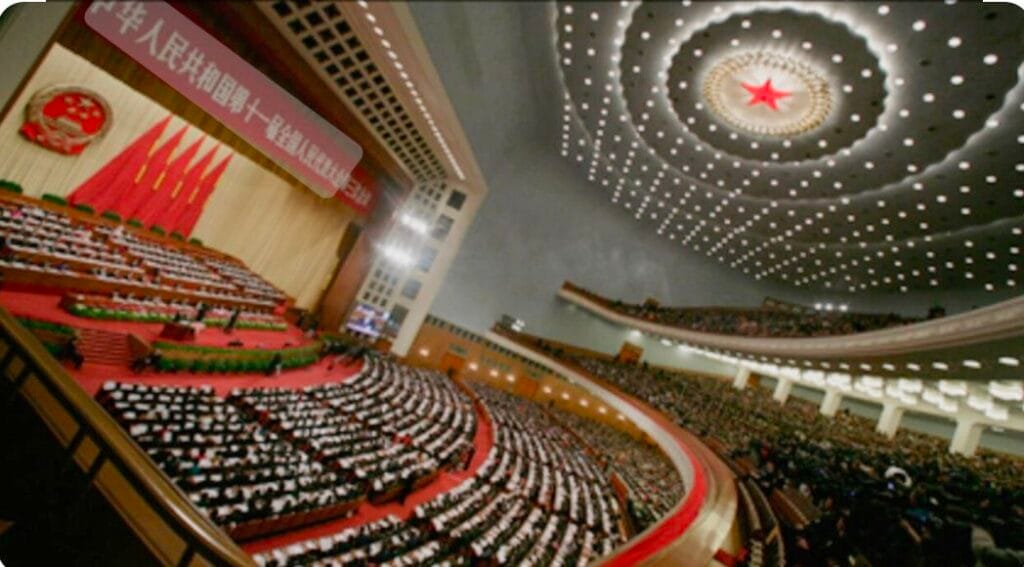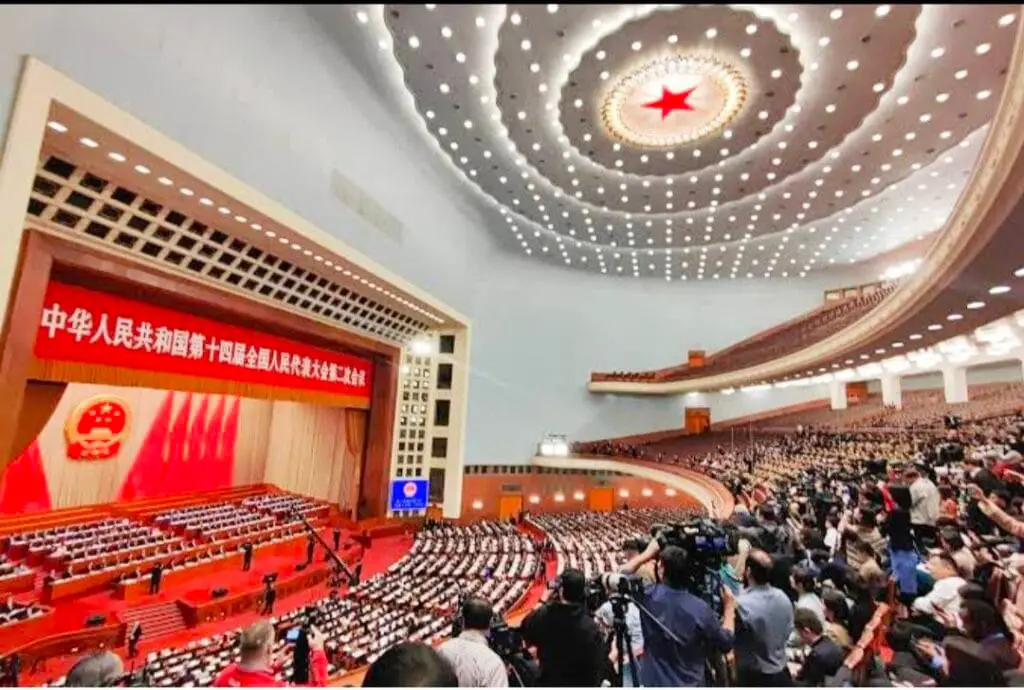
The National People’s Congress (NPC) of the People’s Republic of China is the highest legislative body in the country. It holds annual sessions where key decisions are made regarding legislation, government policy, and leadership appointments. These sessions, often referred to as the NPC sessions, follow a well-defined procedure.
Below is an outline of the typical process :–

1. Pre-Session Preparations
Before the NPC sessions begin, extensive preparations are made:
- Proposals and Bills: Draft laws, reports, and other legislative proposals are prepared and submitted by relevant government bodies, the Communist Party of China (CPC), and NPC members.
- Consultations: There are consultations among NPC deputies, experts, and relevant authorities to refine legislative proposals.
- NPC Standing Committee: The NPC Standing Committee, which operates year-round, reviews the agenda for the annual session and makes necessary preparations.
2. Opening Ceremony
The NPC session is officially opened with a ceremonial gathering:
- Report from the Premier: The Premier of the State Council delivers the Government Work Report, outlining the government’s achievements of the past year and goals for the upcoming year.
- Attendance: The session is attended by NPC deputies, top leaders of the Communist Party, the President, the Premier, and other high-ranking officials.
3. Review of the Government Work Report
After the Premier’s address:
- Group Discussions: NPC deputies break into smaller groups to discuss the Government Work Report and offer their opinions.
- Amendments and Proposals: Deputies may propose amendments or raise questions regarding the report and other legislative matters.
4. Review of Reports and Budgets
Various important reports and budgets are presented for discussion:
- State Budget: The Minister of Finance presents the national budget for the year, outlining revenue and expenditure plans.
- National Development Plan: The National Development and Reform Commission presents the economic and social development plan.
- Other Reports: Other reports, such as those on environmental policies, education, and national defense, may also be presented.
These reports are then subject to review, debate, and possible modification by NPC deputies in group discussions.
5. Consideration of Legislative Proposals
The NPC is responsible for reviewing and adopting legislation. During the sessions:
- Law Drafts: The NPC Standing Committee submits draft laws for review. Important national laws, such as those related to constitutional amendments or economic reforms, may be discussed and voted on.
- Debates: NPC deputies discuss and debate these drafts in both plenary and smaller group sessions.
- Public Consultation: In some cases, there may be opportunities for public consultation or expert input on the proposed laws.
6. Elections and Appointments
The NPC has the power to elect or appoint key government officials:
- Election of State Leaders: During specific sessions, the NPC elects the President and Vice President of China.
- Appointments: The NPC confirms the Premier, the Vice Premiers, ministers, heads of commissions, and other key officials. The NPC may also appoint the Chief Justice of the Supreme People’s Court and the Procurator-General of the Supreme People’s Procuratorate.
- Approval of Appointments: Candidates for these positions are generally pre-approved by the Communist Party, and the NPC formally approves these appointments through voting.
7. Voting
Key decisions during the NPC sessions are made through voting:
- Voting on Proposals: Legislative proposals, the Government Work Report, the state budget, and other important decisions are put to a vote by the NPC deputies.
- Simple Majority: Most decisions are passed by a simple majority vote, though constitutional amendments require a two-thirds majority.
- Secret Ballots: Certain decisions, such as the election of officials, may be conducted through a secret ballot.
8. Plenary Sessions
Throughout the annual meeting, plenary sessions are held where key issues are discussed:
- Deputies’ Questions: NPC deputies can raise questions or seek clarification from government officials on important issues.
- National Media Coverage: Plenary sessions are typically covered extensively by Chinese media, and important addresses, such as those by the Premier or the President, are broadcast to the public.
9. Passing Laws and Approving Reports
At the end of the session:
- Final Votes: After debates and discussions, the NPC takes final votes on legislative proposals, the state budget, and various reports.
- Adoption of Laws: Once approved by the NPC, laws and regulations come into force, and the government work report, budget, and plans are officially adopted.
10. Closing Ceremony
The NPC session concludes with a closing ceremony:
- Speech by the President or Premier: A high-ranking official, often the President or Premier, gives a speech summarizing the outcomes of the session.
- Resolutions Adopted: The NPC formally adopts the resolutions and laws discussed during the session.
- Formal Closing: The session is officially adjourned, marking the end of the legislative cycle until the next year.
Conclusion
The NPC Sessions follow a structured and deliberate process aimed at reviewing and approving key national policies, laws, and appointments. While the Communist Party exerts significant control over these sessions, the NPC serves as the formal legislative body responsible for enacting laws, approving the budget, and supervising the work of the government. The sessions are critical to China’s political governance and play a role in shaping the country’s future.
